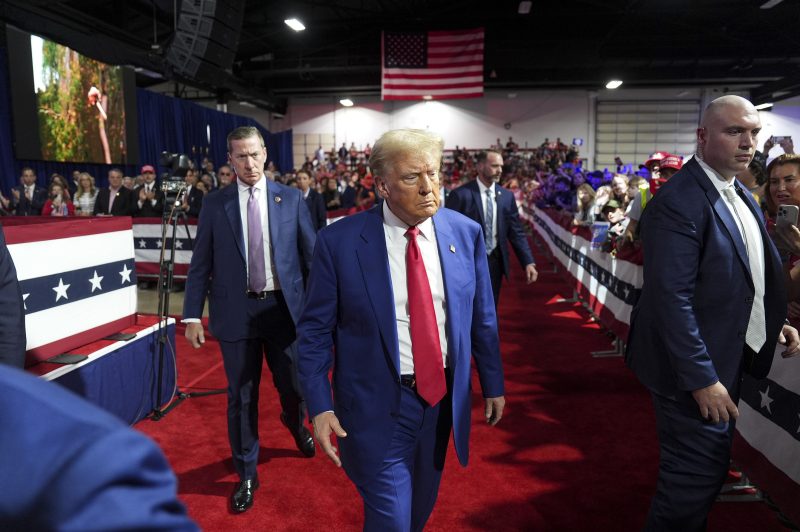In a recent controversial statement, former President Donald Trump garnered criticism for drawing a parallel between the treatment of January 6 defendants and the internment of Japanese Americans during World War II. Trump’s remarks have sparked debate and reflection on historical injustices and the current political climate in the United States.
The comparison made by Trump has understandably sparked strong reactions from various quarters, with many critics viewing it as insensitive and minimizing the severity of both events. The internment of Japanese Americans during WWII is widely regarded as one of the most egregious violations of civil liberties in American history. The forced relocation and incarceration of over 100,000 individuals solely based on their ancestry remains a dark chapter in the nation’s past, one that continues to resonate with the affected communities to this day.
On the other hand, the events of January 6, 2021, when a violent mob stormed the U.S. Capitol in an attempt to overturn the results of a democratic election, have also been condemned as an attack on the very foundations of democracy. The attempted insurrection led to multiple deaths, injuries, and widespread damage to the seat of American government. The subsequent arrests and legal proceedings against those involved have been closely watched by the public and have raised important questions about accountability and justice.
By drawing a parallel between these two vastly different events, Trump has drawn criticism for what many perceive as a false equivalence. While some may argue that all individuals, regardless of their actions, are entitled to due process and fair treatment under the law, likening the plight of the January 6 defendants to the systemic injustices suffered by Japanese Americans during WWII risks downplaying the severity of historical atrocities and undermining efforts to address ongoing social and racial inequalities.
Moreover, Trump’s comparison raises concerns about the politicization of historical narratives for personal or partisan gain. By invoking a painful chapter in American history to defend his supporters facing criminal charges, Trump runs the risk of exploiting the suffering of the past for present-day political expediency. Such actions can further polarize an already divided society and hinder efforts to foster understanding and reconciliation.
As the debate surrounding Trump’s remarks continues, it is essential to critically examine the historical context and implications of such comparisons. Understanding and acknowledging the complexities of history can help promote empathy, dialogue, and a more inclusive and just society where the mistakes of the past are not repeated. As the United States grapples with its past and present challenges, it is crucial to uphold the values of justice, equality, and respect for all individuals, irrespective of their background or beliefs.
